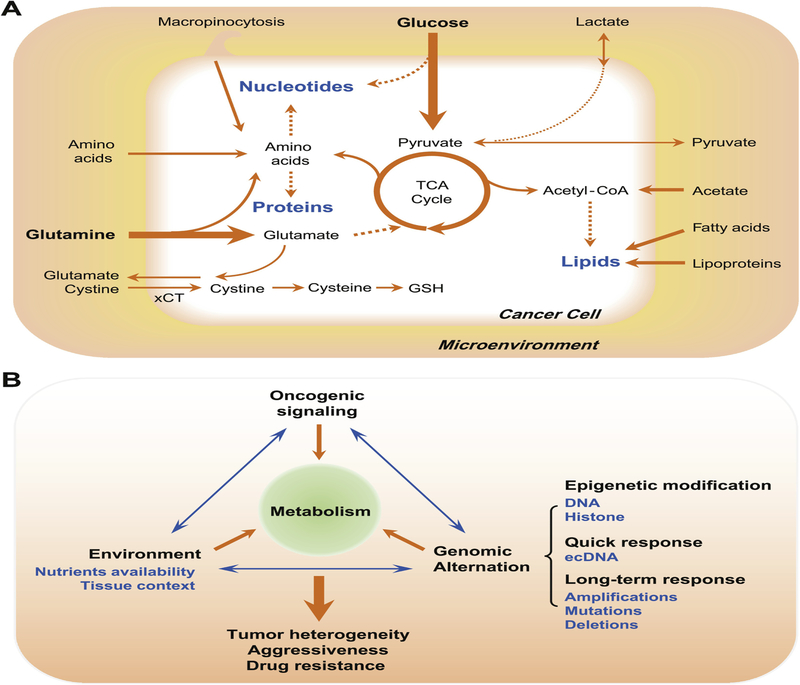Fig. 2. Metabolic co-dependency of cancer cells shaped by environment and the interactions between environment, oncogenic signaling and genomic alternations.
(A) Nutrient availability in the microenvironment determines metabolic dependencies of cancer cells. Cancer cells can synthesize proteins, lipids and nucleotides from different sources of nutrients, either through directly uptake from the environment or through synthesis from intermediate metabolites. (B) The interactions between environment, oncogenic signaling and genomic alternation, select favorable metabolic profiles and oncogenic signatures for tumor cells, contributing to tumor heterogeneity, tumor aggressiveness and therapeutic resistance. Metabolic stress from environment and oncogenic signaling influents DNA and histone modification of tumor cells. As a quick response, extrachromosomal DNA (ecDNA) profoundly contributes to accelerated tumor evolution and intratumoral genetic heterogeneity. Tumors also accumulate amplifications, mutations and deletions in their genome, which alters the metabolic and signaling profiles of cancer cells.

